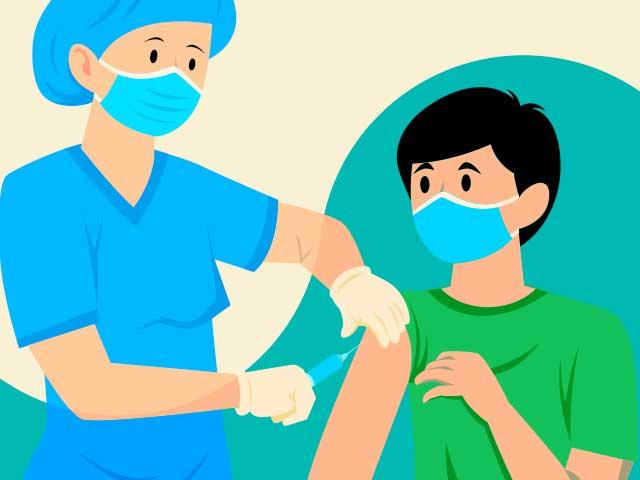Give your kids extra protection against COVID-19

Last May 2021, 15-year-old Alwin and his entire family tested positive for COVID-19, including his 8-year-old and 1-year-old siblings. His mom, Icel, was beside herself with worry. “Ako po at yung asawa ko pareho po kaming may symptoms. Buti na lang po yung tatlong anak ko asymptomatic silang lahat.” Icel said. “Pero grabe yung iyak ko araw-araw, yung kaba ko kasi hindi ko talaga alam kung anong gagawin ko nung panahon na ‘yon.” the mom-of-three added as she looks back on their experience.
Fortunately, Alwin’s family recovered from the virus soon enough with proper care and medication. However, their story is just one among the thousands of families whose children battled with COVID-19. In the Philippines alone, health authorities have found that over 48,000 children ages 19 and below have been infected with COVID-19 as of February 2021. Not all of these kids were asymptomatic like Alwin and his siblings. Some have suffered severe symptoms and were hospitalized while others have died from the disease.
That’s why news of COVID-19 vaccination for children comes as a relief for parents like Icel. Her husband had just had his first dose of the vaccine when he got infected, which helped protect him from the full brunt of the symptoms. “Sobrang nabawasan yung pag-aalala ko nung magpabakuna si Alwin lalo na at may asthma siya.” Icel shares. “Alam ko na added protection po ito para sa kanya para hindi maging severe if ever magkaroon ulit siya ng virus.”
Children ages 12 to 17, whether or not they have comorbidities, are now eligible for vaccination. At present, the only brands available for them are Moderna and Pfizer BioNTech. Both have been approved by the Food and Drug Administration (FDA) to be safe and effective for kids.
Here’s what you should know if you plan on getting your children vaccinated.
Step 1: Register your child.
Contact your Local Government Unit (LGU) or vaccination site to secure a schedule for vaccination.
Step 2: Bring the following documents on your scheduled appointment.
Prepare and bring the following documents on the day of your child’s vaccination:
- A document that shows the relationship between you and your child like a birth certificate.
- A valid ID with picture of the parent or guardian.
Remember that children must be accompanied by their parent or guardian on the day of the scheduled vaccination. Wear masks and maintain physical distancing while waiting for your turn at the vaccination site.
Step 3: Keep an eye out for symptoms or reactions.
Bodies react differently to COVID-19 vaccines. As Dr. Bhenjoe Empedrado from the Department of Health explains, some may have mild reactions from the shot like fever and fatigue, while some may not experience anything at all. “Hindi ibig sabihin na walang sintomas na naranasan, hindi tumalab ang bakuna.” he said. “Ang importante ay makumpleto pa rin ang ating mga kinakailangang doses ng bakuna.”
Although rare to happen, Dr. Empedrado advised that children who develop a severe allergy like anaphylaxis from the first dose, or those who have severe allergies to any of the vaccines’ ingredients like polyethylene glycol (PEG) and polysorbate, should not get vaccinated.
In case your child develops an allergic reaction upon the first dose, call your pediatrician, health center, or the hotline listed on your vaccination card. They will advise you how to relieve the symptoms or if your child needs further medical attention.
The COVID-19 virus is still spreading which makes the vaccine among the best protection you can give your child. Get them vaccinated as soon as they can. Encourage them to keep on doing their part to stop the spread of the virus by wearing masks, physical distancing, and regularly washing their hands. This way, our children can finally get back to the activities they enjoy with the confidence that they are extra protected from the virus.




